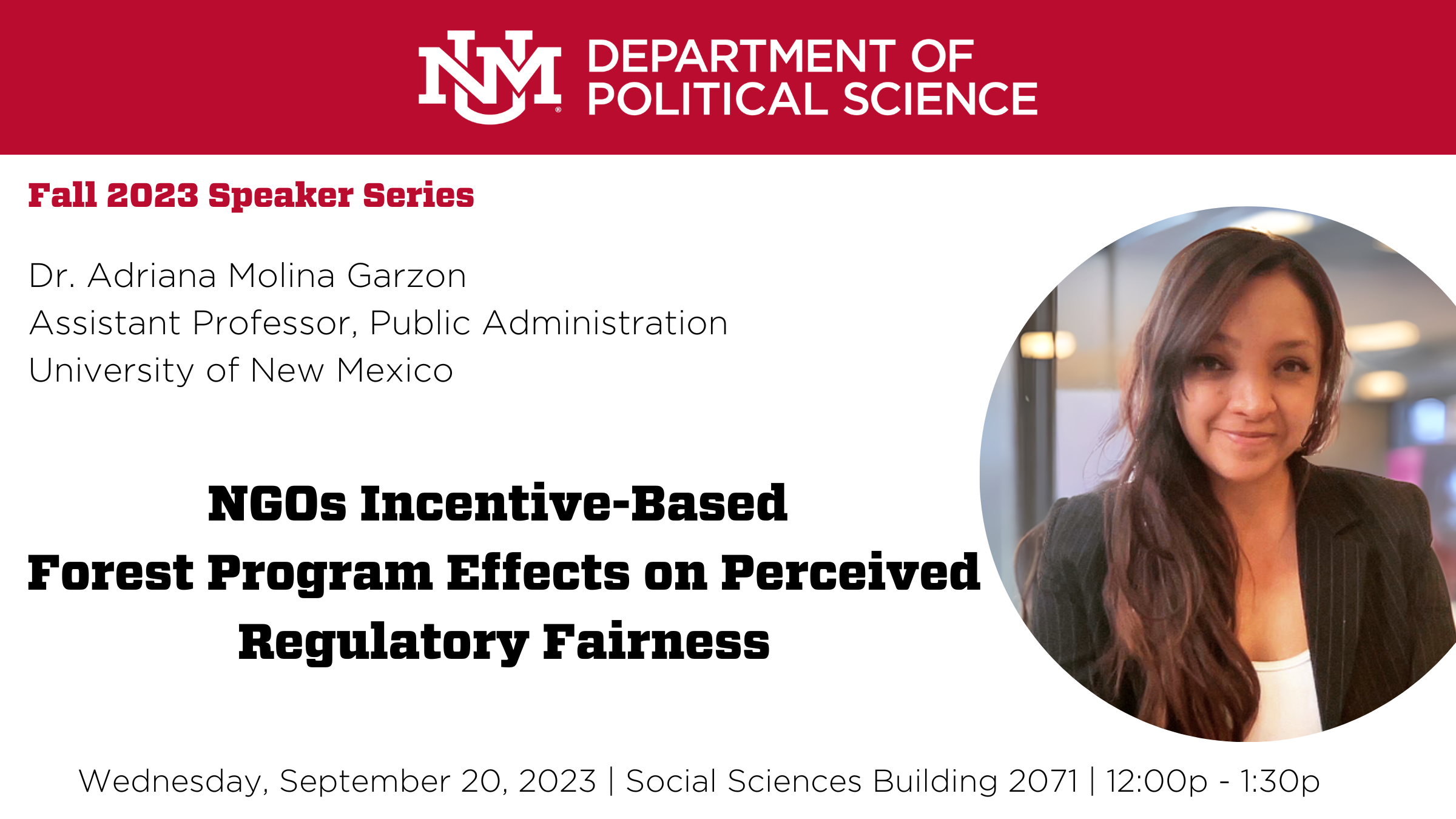Fall '23 Speaker Series: Dr. Adriana Molina Garzon
Departmental Event

Start Date: Sep 20, 2023 - 12:30pm
End Date: Sep 20, 2023 - 01:30pm
Location: Social Sciences Building - Room 2071
Please join us Wednesday, September 20th, 2023 from 12:30p-1:30p in room 2071 of the Social Science Building as we welcome Dr. Adriana Molina Garzon. Talk title and abstract are below. This event is free and open to the public.
If you are interested in an online broadcast of this talk, please contact Department Administrator Marliss McGarvey.
An event flyer can be viewed and downloaded at this link [PDF].
Title:
NGOs Incentive-Based Forest Program Effects on Perceived Regulatory Fairness
Abstract:
The role of non-governmental organizations (NGOs) as collaborators in the delivery of public services has been perceived as a mechanism to promote larger and more impactful public programs. This dynamic may improve citizens’ sentiments toward governments by facilitating the flow of information between citizens and governments or reducing the risk of perceived unfairly targeted regulation. How does the role of NGOs working directly with communities in the implementation of programs to reduce deforestation and forest degradation influence citizens view of governments’ regulatory role? This study focuses on the tension between NGOs supporting environmental policy by providing economic incentives to avoid deforestation, vis-à-vis supporting government’s regulatory actions. We combine data from a household-level survey and a framed field experiment (FFE) collected in Peru and Brazil. At each country, the same survey and FFE were implemented in a set of control and intervention communities where non-governmental actors implemented a REDD+ program. We found that the NGOs presence reduced perceived fairness of government’s regulations and increased the perceived frequency of monitoring by the NGOs. In consequence, during the FFE individuals in REDD+ communities behaved less cooperatively in the FFE when the government was introduced as an external enforcement agent implementing sanctions to violators.
Speaker Bio:
Dr. Adriana Molina Garzon is an assistant professor in the School of Public Administration at UNM. Social scientist, Ph.D Political Science from the University of Colorado Boulder. She is interested in studying the relationship between human communities and natural resources governance, particularly the management of forests in developing South American countries where many marginalized communities depend on the resources from forests. She is interested in advancing the knowledge of policymaking as a network of involved actors where non-governmental organizations play a significant role in influencing government’s actions and communities’ attitudes towards governments, as well as promoting sustainable development.

